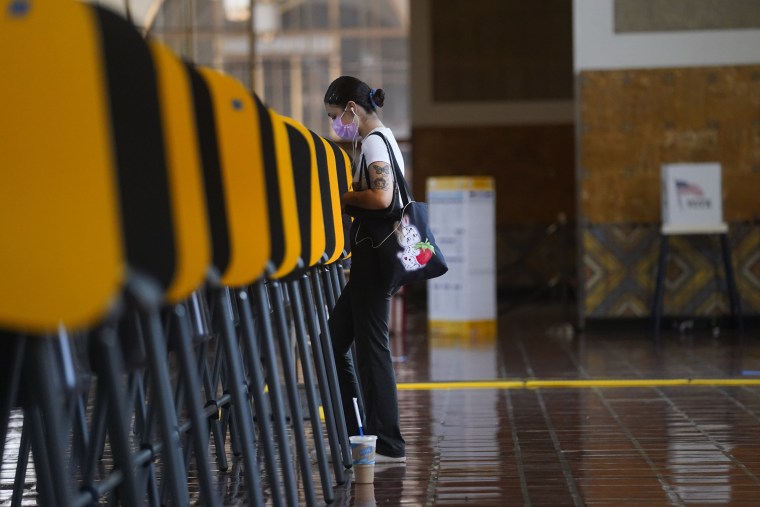LOS ANGELES — California lawmakers looking to reform the state’s recall system after Gov. Gavin Newsom trounced an effort to remove him from office found little consensus on what the future of direct democracy could look like in a state of 40 million people.
On Thursday, members of the state Legislature’s election committees heard more than three hours of testimony from bipartisan panelists and experts on ways California could overhaul the recall process.
“This is the last bastion of checks and balances we offer for the voters," said Republican Assemblyman Kelly Seyarto, adding that complicating the process could have a “chilling effect for our voters.”
Since California voters gave themselves recall power in 1911, there have been 179 attempted recalls of state elected officials, of which 11 qualified for the ballot and six — mostly legislators — were recalled, according to background provided to the committees.
The only two statewide recall elections have been in the last 18 years: one unseated then-Gov. Gray Davis in 2003 and replaced him with Republican Arnold Schwarzenegger; the other failed to unseat Newsom earlier this year.
Changing the recall system would require the California Legislature to pass a proposed amendment to the state Constitution with a two-thirds majority. The proposed amendment would then appear on a statewide ballot.
“I am troubled by the fundamentally undemocratic nature of California’s current recall process,” said Assemblymember Marc Berman, chairman of the Assembly Committee on Elections.
Berman was among two California Democrats who called for reforming the state’s recall system the day after Newsom’s victory. The other, state Sen. Steve Glazer, chairman of the Senate Committee on Elections and Constitutional Amendments, said recall efforts have become burdensome and require fine-tuning.
“It is clear to me that the ways recalls are conducted in this state need to be reformed,” he said. “The recall was not intended to be, and must not become, a back door for the losing side of an election to re-litigate that result.”
Newsom, a Democrat, beat back recall efforts by the same margin he first ascended to the governor’s office in 2018. According to the state Secretary of State’s Office, 62 percent of voters rejected the option to recall Newsom while 38 percent voted in favor of ousting him.
Newsom faced serious headwinds and multiple crises as polls over the summer showed his job in jeopardy. But with the help of party leaders including President Joe Biden, he succeeded in rousing Democratic voters with a message that warned a Republican replacement would roll back Covid-19 protections and betray the state's progressive character.
California's finance department estimated in July that holding a recall election would cost taxpayers $276 million, a price tag repeatedly criticized by opponents of the effort. On Thursday, California Secretary of State Shirley Weber said the final cost is closer to $300 million.
“It is clear that Californians want a process of engagement … no matter how flawed it is,” she said. “But it has to have more teeth to it. It has to have more direction to it.”
Weber said her office has seen a “proliferation” of recall attempts across the state at the local level, including an effort against the Los Angeles district attorney that was abandoned in the wake of Newsom’s victory.
Glazer and Berman previously said that they hope to clarify what constitutes a “recallable offense" to establish a higher bar for future recall elections. Currently, California has the lowest threshold for recalling a governor with proponents needing to gather 12 percent of total votes cast in the previous gubernatorial election.
Former Secretary of State Bruce McPherson, who worked under Schwarzenegger, a Republican, said recalls should be limited to serious or criminal conduct.
“The goal should be to encourage voters to save the recall for criminal activity or malfeasance rather than because of a partisan opposition,” he said.

